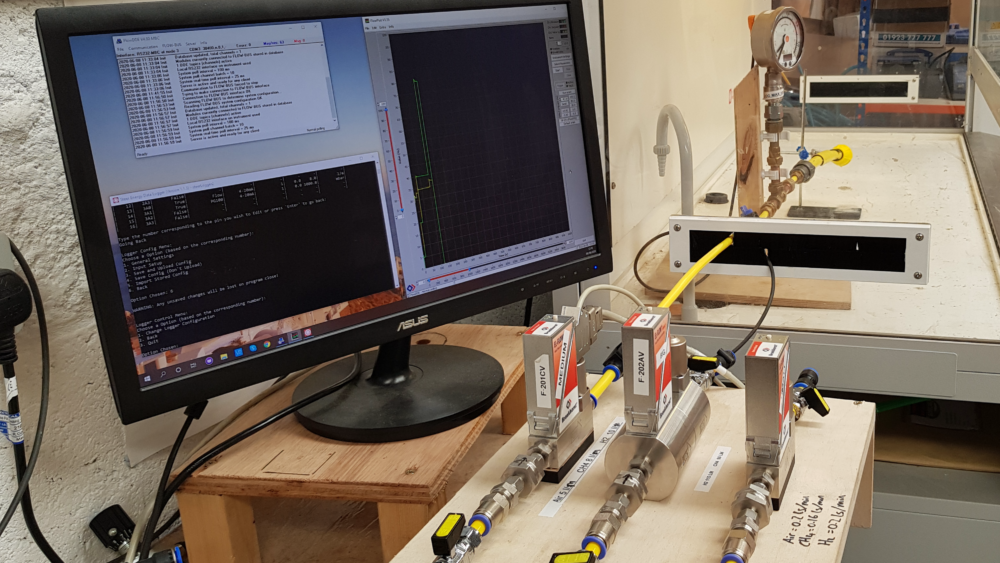Hy4Heat™
Run by Arup and Kiwa Gastec, the overall project was to establish if it is technically possible and safe to replace methane with hydrogen in commercial and residential buildings and gas appliances.

The work Steer Energy carried out addressed part of this challenge. The specific area of review was to conduct a comparison of the leakage from various domestic gas joints and fittings and compares the leak rates for methane and hydrogen.
A calculation is then to be made to assess the relative safety of using hydrogen in the home vs methane, the major component of natural gas.
Test Work reflecting "real-world" conditions
The project involved carrying out an in-depth study of fixtures and fittings likely to be seen in domestic gas networks.
A large number of test pieces were made up and the leak flows in hydrogen and methane were measured for each test piece. Many of the test pieces were deliberately damaged to induce leakage. Gas fitters were consulted to determine the types of damage they would typically find. A range was carefully considered in each case to cover the likely possibilities.

Comparing Experimental work with Theory
Leak flow theory has been examined to determine the likely differences in flow and leakage between methane and hydrogen, and compared to the measured data. The main findings were:
• a non-leaking fitting in methane will be non-leaking in hydrogen.
• a leak in methane will result in a leak in hydrogen.
Many of the leaks observed on damaged fittings resulted in small leak flows of less than 1x10-3 m3/hr in both gases. This is close to the boundary between passing and failing the current gas tight tests in domestic systems and light commercial systems.
Key Findings
None of the tests carried out have found a feature or type of fitting that leaked in hydrogen and not in methane.
No fittings have been found to be unsuitable for hydrogen.
The current pressure test for gas systems should be valid for hydrogen filled gas systems.
For More Information
Contact:
